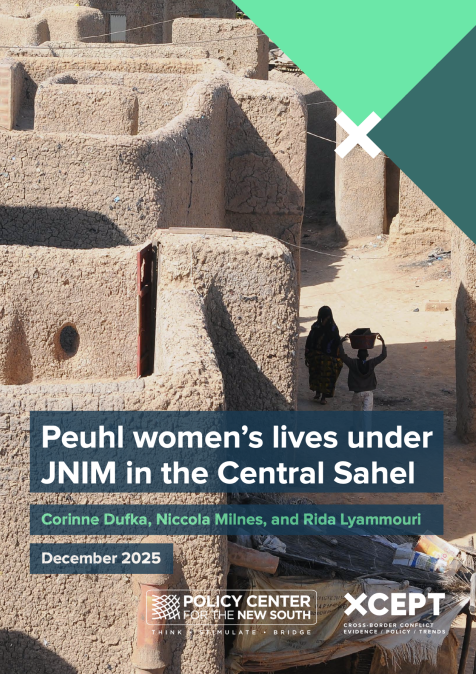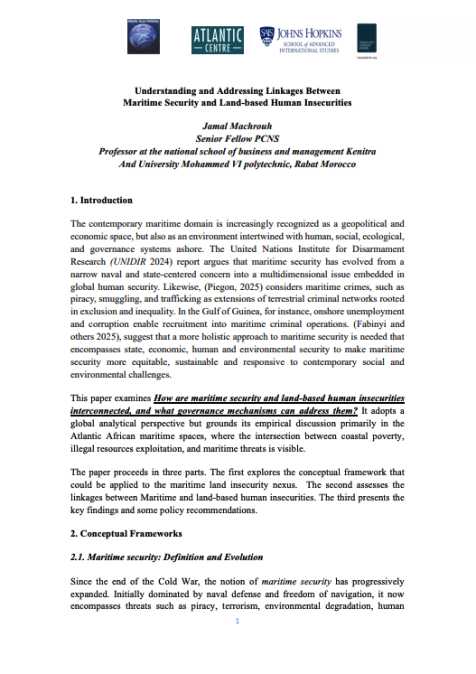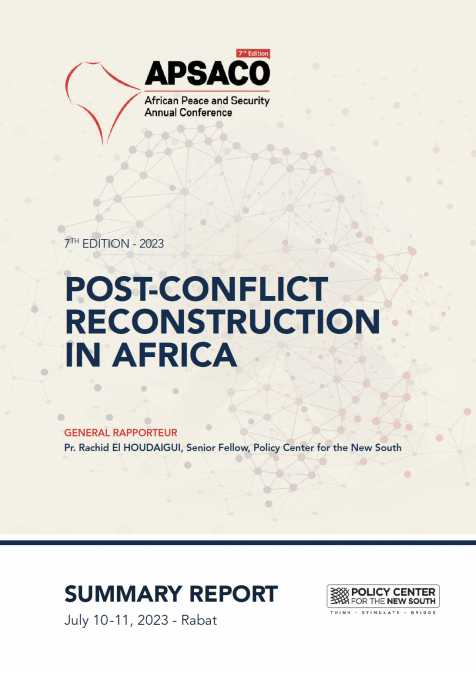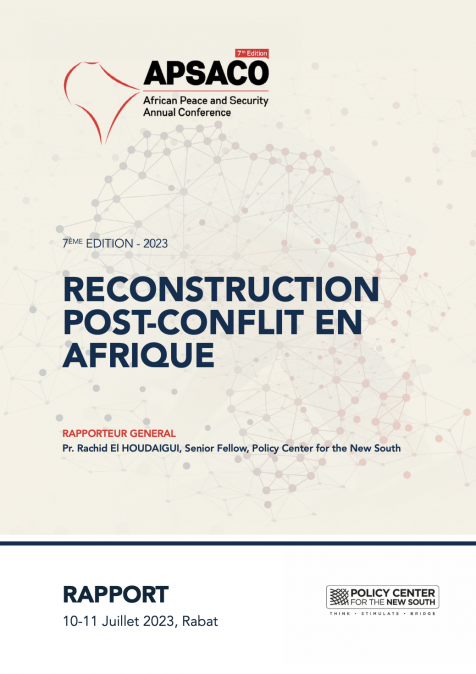Publications /
Opinion
In November 2019, as a veteran peace advocate, I had a rare opportunity to be invited to attend the 2nd Paris Peace Forum in France through the nomination of the Policy Center for the New South. This gathering was of high paramount for me considering my role as a peace advocate but also as a former member of the National Working Group in Prevention of Violent Extremism in Tanzania. As an invited guest I did not want to be part of every agenda of the forum so instead, I targeted specific sessions which I thought would add value to my work and that was a session covering the topic, “ Global Problem: Local Approaches to Prevent Violent Extremisms.“. The interesting part of this panel discussion was the fact that it featured young peacebuilders who are engaging at the grassroots level such as Mr. Jeppe Albers – Director of Nordic Safe Cities Network (Denmark), Mr. Tendai Mtana – Advisor of City Diplomacy in Mombasa (Kenya), Ms. Fauziya Abdi Ali – President of Women in International Security (Kenya) and Ms. Nuria Karakulova – Project Coordinator of Search for Common Ground (Kyrgyzstan).
In the session Mr. Tendai emphasized that Violent Extremism must be contextualized and it is the issue that has been perpetuated by the inability of the African community to tell their story at the Global level. He cautioned about the monopoly of state to have control of every single community problem and advised that the community has to be left to find solutions to their own problems due to the fact that they understand their situations better than political elite outsiders. He further highlighted that radicalization is highly influenced by culture and heritage triggered by the question of identity resulted from the existence of multicultural ethnic and misconception of who we are that lead to the rise of issues of radicalization in the community.
Ms. Fauziya elaborated that Violent Extremism is a locally rooted problem that is globally connected. She suggested that to prevent it, community grievances must be addressed, especially those associated with government action to address the needs of the people. She also noted the critical role of women in countering violent extremism and suggested terrorism be addressed at the preventive stage due to the failure of hard diplomacy to solve the problem.
A sense of dignity
On the other hand, Ms. Nuria highlighted how Violent Extremism is transforming in her community and insisted on the need to reintegrate the former youth victims of Violent Extremism into the local community. She warned of the fact that Violent Extremism is not a black and white issue hence suggested to look at it depending on the context of the country. She noted that she used to think that the government was deliberately ignoring them until when they realized they were not doing enough as youth to engage it. She concluded by recommending the inclusiveness of youth as an important factor to make them feel heard and respected by their community as a mechanism to prevent them from being radicalized.
On the contrary, Mr. Jeppe noted the rise of some aspect of Violent Extremism in Denmark and pointed out the fear that is escalating among the people to speak out on the public debate in the country becoming a new normal. He singled out that radicalization is prompted by lack of sense of belong and identity, poor access to opportunity and the community little space to speak about unity.
On the question of how to respond to Violent Extremism, Mr. Tendai recommended for community to be given a sense of dignity and noted that the idea of identity is formed in the community and the idea of us to interact is what fuel Violent Extremism. He reiterated that humanity seeks connection beyond borders hence understanding of dignity and where we come from is very essential for preventing ViolentExtremism. He warned of the violation of rights by hard security while seeking to do its job and urged for redefinition and transformation of what makes governance. He proposed the government to allow the local community play their part at the grassroot level and simply act as a facilitator of the process.
Ms Fauziya on the other side emphasized that the community level is where stain power is, hence when engaging with hard power one needs to think of the repercussion. She explained that different community requires different approaches to address Violent Extremism. She gave an example of Kenya which has a National Action Plan on Countering Violent Extremism as well as 47 county action plans to address Violent Extremism at the respective communities. She concluded by proposing for understanding where the lack of sense of belonging is coming from as a critical approach to deter Violent Extremism so as to avoid being perceived as overstepping.
While Mr. Tendai observed the misrepresentation of the unique nature of our local community and emphasized resilience as core principle to working with the youth. Conversely, Ms. Nuria called for intervention at psychological level in order to create breath atmosphere at home to young people. She suggested capacitating stakeholders who work on daily basis with youth such as teachers and youth officers as a way to prevent youth from being radicalized.
Which better ways to prevent the youth from being radicalized ?
As a participant I also had the opportunity to challenge the panelists to share their experiences on better ways to hinder the youth from engaging in unproductive issues and put them at risk of being radicalized. My question was responded by Mr. Jeppe, Ms. Fauziya and Ms. Nuria respectively as follows:
Mr. Jeppe recommended for working together with people at risk to prevent them from joining Violent Extremism groups. He emphasized on the necessity of addressing the question of online Violent Extremism Issues. He further advised the youth to think beyond their own community for hope and warned that ideological differences should not mean that we have to take arms to harm each other.
Ms. Fauziya on her response suggested responding to the question of what are we about rather than who we are not. She also pointed the need to find what the extremist groups did right to be able to attract the people to move to them in order to know what needs to be done to counter them.
In her response, Ms. Nuria recommended for capacity building for youth, creating youth centers and running youth-oriented projects with support from the local government authorities of the respective communities. However, Mr. Jeppe concluded by giving examples of youth forums and youth houses in Scandinavia as well as the establishment of youth clubs as a better way to inhibit young people to engage in unproductive things such as smoking and put them at risk of being easily radicalized.
*Seleman Y. Kitenge is an Alumnus of the 2018 Atlantic Dialogues Emerging Leaders Program (ADEL) au lieu de Seleman Y. Kitenge is Alumnus of ADEL 2018.
The opinions expressed in this article belong to the author.









